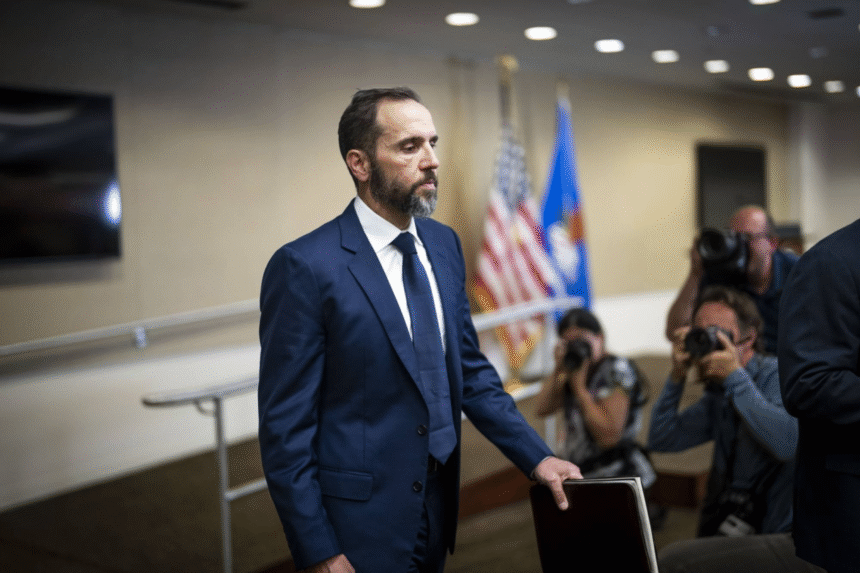WASHINGTON / THE HAGUE – U.S. President Donald J. Trump has launched a scathing attack on former Special Counsel Jack Smith, calling him “a madman” and suggesting he should “stay in The Hague where he can execute people.” The remarks came during a nationally televised interview with NBC, where Trump criticized Smith’s handling of legal cases against him and welcomed news that Smith is now under federal investigation.
Smith is being investigated for allegedly violating the U.S. Hatch Act — a law that prohibits federal employees from engaging in political activity while performing their official duties. The U.S. Office of Special Counsel confirmed the investigation to major outlets, including Reuters and Associated Press, following a formal complaint filed by Republican Senator Tom Cotton of Arkansas. Cotton described Smith as “a political figure disguised as a public official.”
Jack Smith resigned from his role in January 2025 after his criminal prosecutions against President Trump—relating to classified documents and alleged attempts to overturn the 2020 election—were dismissed following Trump’s reelection victory.
In his NBC interview, Trump said:
“In the history of our country, nothing like this has ever happened. And I’ve won these cases. The madman Jack Smith is going back to The Hague where he can execute people. That’s where he belongs. I think he’s dangerous even there.”
Asked whether Smith should be criminally investigated, Trump responded:
“Well, I think he’s very corrupt,”
but added that he would not interfere in prosecutorial decisions.
Before his appointment as U.S. Special Counsel, Smith served as the Chief Prosecutor of the Kosovo Specialist Chambers in The Hague. He led war crimes prosecutions against former leaders of the Kosovo Liberation Army (KLA), including former Kosovo President Hashim Thaçi, and former parliamentary speakers Kadri Veseli and Jakup Krasniqi. They remain in pre-trial detention along with other former KLA members, accused of war crimes and crimes against humanity.
Trump’s comments have reignited political and legal debates not only in the United States but also in Kosovo, where the Specialist Chambers continue to be a controversial topic. While some view the court as a necessary institution for justice, others—including supporters of the KLA—consider it politically motivated and one-sided.
As Smith’s own conduct comes under scrutiny, the broader implications for international justice and U.S. domestic politics are becoming increasingly intertwined.







